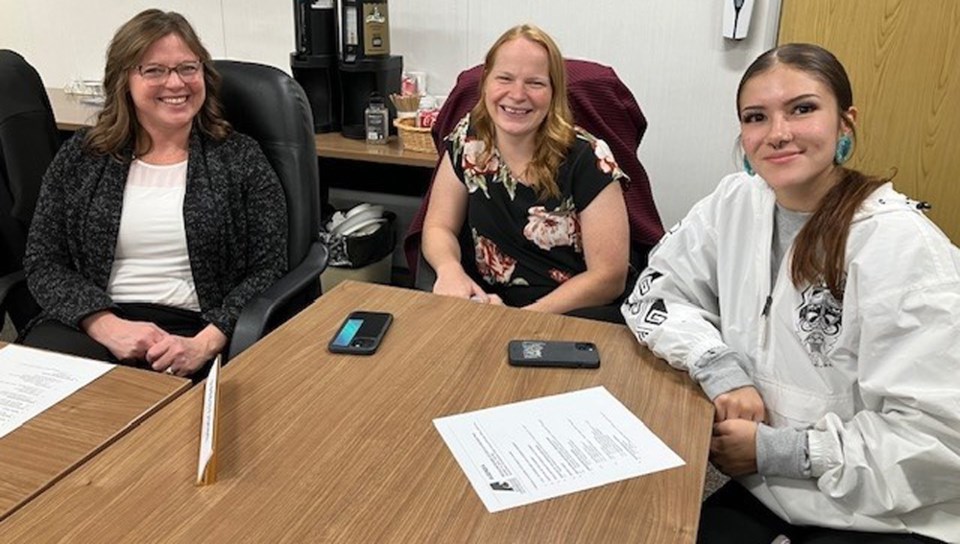WEYBURN - The mandate, the goal, is stated clearly and simply. “Our students achieve at high levels.”
How they get there was the topic of discussion and presentations in the South East Cornerstone Public School Division’s Weyburn conference room on October 15 during the board members’ open business session.
Keith Keating, the division’s director of education, led off the focus presentation by pointing out how data are presented to show students are achieving at high levels. He said secondary marks are core indicators for all students, as is reading and mathematics data. Early years evaluations are also carried out and such things as athletic achievements are noted and marked down as are graduation rates that meet and usually exceed provincial benchmarks.
Using charts and graphs, Keating pointed out the various indicators that show where a student or group of students may not be meeting an achievable target, and what is done to rectify the situation if required to maintain the loftier status.
Following his remarks, Keating introduced Turquoise McArthur, a student at Arcola School who was accompanied by Alaina Buchanan, her support counsellor. Turquoise, a senior student outlined her high level involvement within a RCMP National Youth Advisory Committee.
The young student spoke of the challenges the committee work provided on a monthly basis and involved such things as health issues, First Nations challenges and shared experiences.
Turquoise said there were 120 of these youth committee members across Canada and they were able to convene at a June meeting where they got to know one another in person.
“We shared experiences, and aspirations. It was nice to meet the other people,” she said.
Turquoise answered several questions from board members regarding the RCMP sponsored committee including one that asked her if she would recommend it to another student or group of students? The answer was a quick affirmative with the additional note that committee members were treated well and with respect.
Melissa Holman was next up. A diverse needs instructional coach, Holman spoke of developing life skills within the alternate education, intensive needs and diverse needs students.
In these situations, successful transitions are a key point on the progression scale since these students may have one or several challenges such as a cognitive disability, or physical/medical disability or mental health/psychological challenges.
Holman pointed out examples of successful transitions to further education, improved community status and/or job placements and used one video clip to show how a successful transition by a Moosomin McNaughton School student improved lives for the individual, work site personnel and home bases.
In concluding her portion of the presentation, Holman added that she felt she had “the best job in the world.”
Christine Larson, a learning support teacher from Weyburn Comprehensive School shared examples of how students have successfully transitioned to paid employment or post-secondary education opportunities from alternative education paths.
Larson explained how the work experience program rolled out for students in Grades 10 -12 and how they were required to meet labour standards and job expectations and communication skills while improving social skills and customer relations. She said the placements are generally done on a one month trial with the prospective employer(s) so they and the student can “test drive” various types of jobs. If the personnel and job site are conducive to a good working relationship, the student is then introduced to a more permanent situation with entry-level tasks that can progress with the mastering of additional skills.
Job coaches support the student/employee while teaching job strategies for individual success that allows the students to increase independence with positive reinforcements. This, she said, leads to paycheques, independent living and further independent activities.
Larson said many Weyburn based businesses are repeat supporters of the program and have hired the students once they become young adults, out of school and into the more traditional work force.
“Some businesses in Weyburn have been amazing. We discover what we need to focus on,” Larson said in referring to the process of finding out what interests the involved student has and then the job placements and requirements come into play.
The learning support educator added that partnerships have been forged through the years with community supportive living divisions of Social Services, the Work Kin Shop offering varying levels of support depending on needs, group homes that give living supports and other items such as inclusion practices and autism resource support.
She concluded her remarks by discussing the various success rates of 11 students over the past years, including a current student who is now on a job placement route and clearly progressing.
Larson fielded a few questions and comments and was thanked by chairwoman Audrey Trombley who also thanked the other speakers following their presentations.




